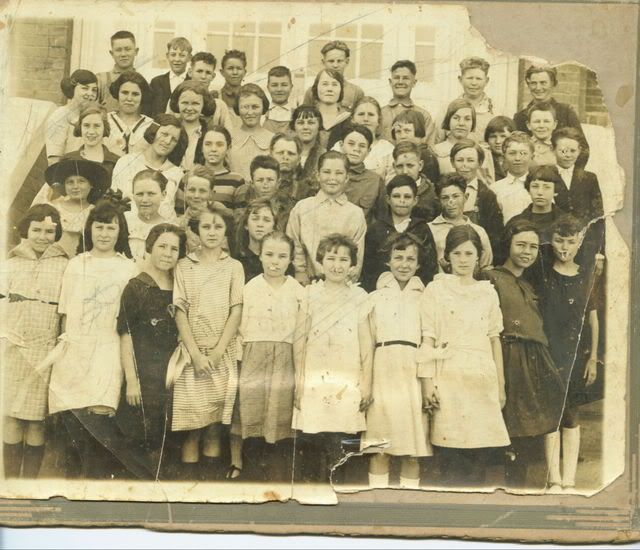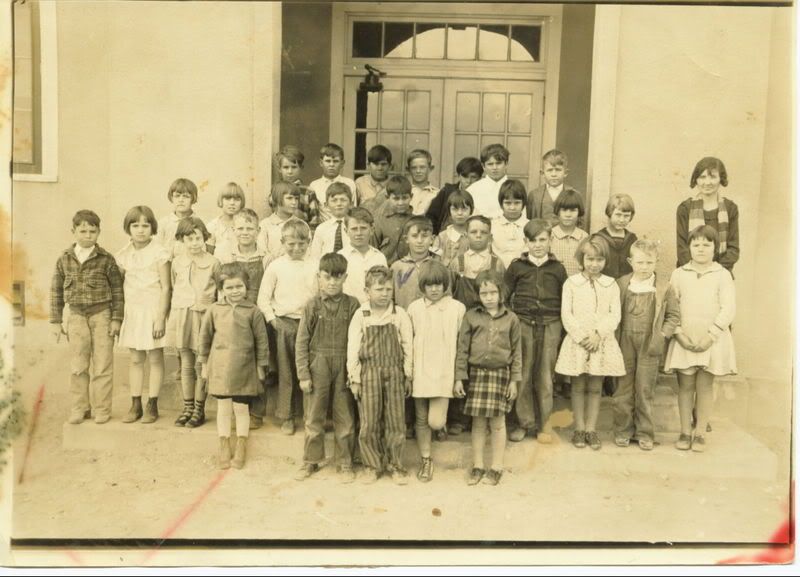Yeah, my maternal great-grandparents had it pretty bad. It's a shady story, but all I know is my great-grandfather for blacklisted, and ended up going insane. Murder/suicide with my great-grandmother. My grandmother (oldest, at 9) and her 5 other brothers and sisters ended up going to an orphanage.
My grandmother would tell my mom how she and her mother would pick dandelions and other edible flowers/green for food. They would also scrape the cream off milk to make (I think) butter, and keep the hardened grease leftover from frying meat as lard for further usage. Any oils used for cooking was strained and poured into a jar to be reused. My grandmother kept doing this, and my mom still does it today. We have like a jug of used canola oil in our fridge.
I don't know if it's from growing up in an orphanage during the Depression, or just an orphanage in general... but my grandmother had some pretty disturbing stories. I guess paper was in great demand, and if a child tore a piece and needed a new sheet for writing they were punished by getting their wrists whipped--or worse, depending on the nun. Same with breaking pencils or spilling ink. She also told me a story that had to do with sanitary napkins... which I will not repeat.
We had a very limited income growing up, so my mom was pretty thrifty. We also reuse plastic baggies, and I never brought a brown-bagged lunch to school... always plastic shopping bags. I went to one of those grade schools where we were ordered to cover our books (since we didn't buy them), and my mom would always request paper bags during back to school season to make book covers out of. If we're almost our of liquid soap, but there's still a bit left my mom will pour some water in the bottle to get the very last drop out of it. She'll also do this with shampoo. She makes tons of soups in big, huge pots and freezes them before the winter... so there's never a chance we'll be out of food. After Thanksgiving, we'll make a soup from the leftover turkey/vegetable remnants. Oh, and she saves EVERY SINGLE PACKET of take-out ketchup/soy sauce/salsa... you name it. This bothers me, since the first shelf in our fridge is dedicated to mini-packets of spicy mustard and soy sauce. She does the same with the little packets of salt and pepper. All my clothing growing up were my brothers and cousins hand-me-downs, and any old pair of jeans or long-sleeved t-shirt was cut down to make either shorts or a short sleeved tee. Socks with holes are cut to make rags. Oh, and we reuse plastic water bottles. One water bottle can usually last a few weeks to a month, given it's washed out often. Oh, also, any plastic containers or jars get reused. We must have a million butter containers holding various things throughout this house. Buttons are kept, same with safety pins and hangers.
My grandmother would tell my mom how she and her mother would pick dandelions and other edible flowers/green for food. They would also scrape the cream off milk to make (I think) butter, and keep the hardened grease leftover from frying meat as lard for further usage. Any oils used for cooking was strained and poured into a jar to be reused. My grandmother kept doing this, and my mom still does it today. We have like a jug of used canola oil in our fridge.
I don't know if it's from growing up in an orphanage during the Depression, or just an orphanage in general... but my grandmother had some pretty disturbing stories. I guess paper was in great demand, and if a child tore a piece and needed a new sheet for writing they were punished by getting their wrists whipped--or worse, depending on the nun. Same with breaking pencils or spilling ink. She also told me a story that had to do with sanitary napkins... which I will not repeat.
We had a very limited income growing up, so my mom was pretty thrifty. We also reuse plastic baggies, and I never brought a brown-bagged lunch to school... always plastic shopping bags. I went to one of those grade schools where we were ordered to cover our books (since we didn't buy them), and my mom would always request paper bags during back to school season to make book covers out of. If we're almost our of liquid soap, but there's still a bit left my mom will pour some water in the bottle to get the very last drop out of it. She'll also do this with shampoo. She makes tons of soups in big, huge pots and freezes them before the winter... so there's never a chance we'll be out of food. After Thanksgiving, we'll make a soup from the leftover turkey/vegetable remnants. Oh, and she saves EVERY SINGLE PACKET of take-out ketchup/soy sauce/salsa... you name it. This bothers me, since the first shelf in our fridge is dedicated to mini-packets of spicy mustard and soy sauce. She does the same with the little packets of salt and pepper. All my clothing growing up were my brothers and cousins hand-me-downs, and any old pair of jeans or long-sleeved t-shirt was cut down to make either shorts or a short sleeved tee. Socks with holes are cut to make rags. Oh, and we reuse plastic water bottles. One water bottle can usually last a few weeks to a month, given it's washed out often. Oh, also, any plastic containers or jars get reused. We must have a million butter containers holding various things throughout this house. Buttons are kept, same with safety pins and hangers.




